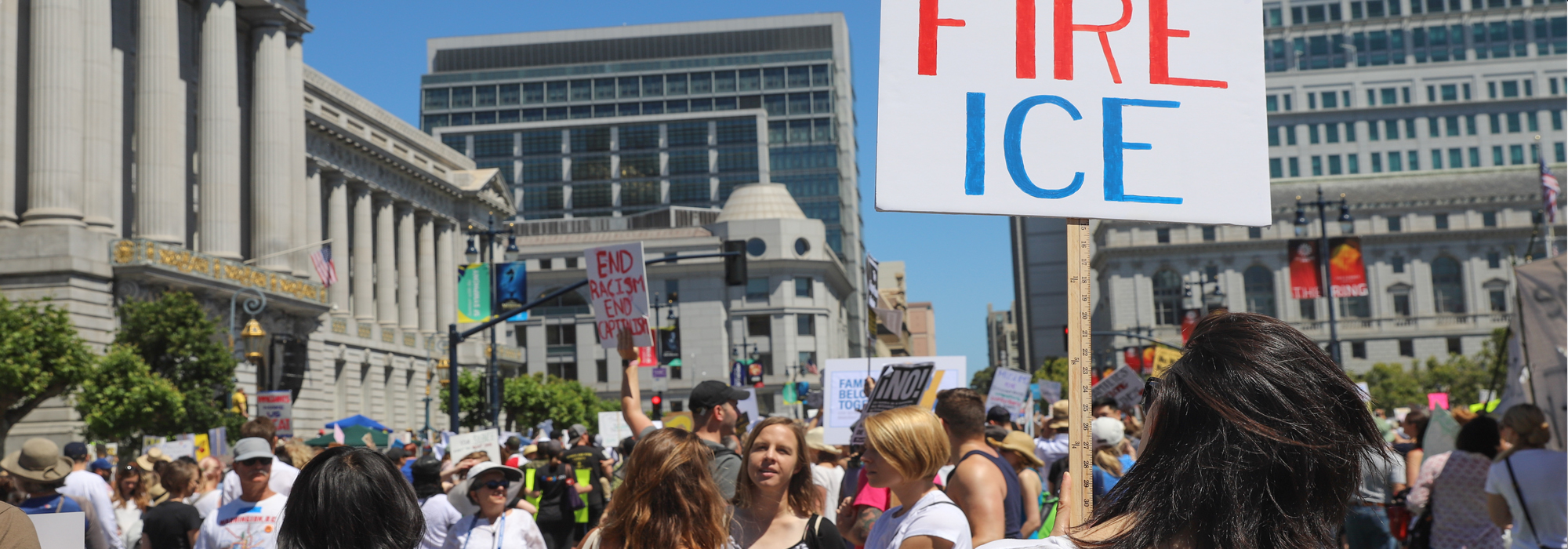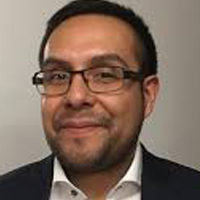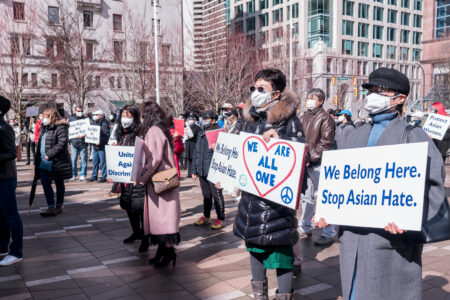
(This article has been translated from French.)
In June 2018, the effects of the Trump administration’s “zero tolerance” policy toward irregular migrants from Central America and the attendant images sparked outrage around the world. The main cause of the outcry was the separation of children from their parents. A powerful Time magazine cover perfectly illustrated this contemporary form of barbarity, practiced by those who, in the words of historian-philosopher Tzvetan Todorov, “deny the full humanity of others.” In his statement on World Refugee Day, Prime Minister Justin Trudeau declared that “how we treat the most vulnerable among us defines who we are – as individuals, as countries, and as a global community.”
In spite of his about-face on family separations, the deterrent effect of the US President’s policy won’t stem the tide of Central Americans attempting to cross the Mexico-US border. Several factors are driving them into exile. The wave of migration from the northern triangle of Central America – Guatemala, El Salvador, Honduras – to Mexico and the US can be traced back to a series of American military interventions over a century, especially during the Cold War in the name of fighting Communism, which left a legacy of violence and poverty.
Since the Guatemalan coup in 1954, American support for dictatorships has destabilized the region economically, socially and politically. Despite the democratic transition of the 1980s and 1990s, insecurity and socioeconomic inequality persist. In a report published in May 2017, Médecins Sans Frontières recalls this legacy, and notes that the wave of migration isn’t motivated by economic factors alone. Impunity and widespread corruption in weak political institutions, as well as extortion and violence committed by organized crime and the maras, such as MS-13 and B-18, are pushing thousands of families and unaccompanied minors to flee their homelands. Criminalization of human rights defenders, some of them opposing Canadian mining projects, is perpetuating the cycle of violence and forcing many people into exile.
Reports by the Geneva Declaration Secretariat released between 2011 and 2015 found that the countries in Central America’s northern triangle have the highest rate of lethal violence in the world and a particularly high rate of femicide. According to one recent study on child and family migration, a child under 18 living in this part of Central America has a 10 times greater chance of being killed than a child living in the US. That is why thousands of unaccompanied children and families are risking everything to escape Central America and travel north to safer lands. And the UNHCR reports that between 2011 and 2017 “more than 350,000 residents of Honduras, Guatemala and El Salvador have filed asylum claims after fleeing escalating violence at home.”
In view of Canada’s history of taking in Central American refugees in the 1980s, its desire to win a nonpermanent seat on the UN Security Council in 2020, and the recent political changes in Mexico, it is in the Trudeau government’s interest to respond positively to this humanitarian crisis.
Under the Canada-US Safe Third Country Agreement, which came into effect in 2004, asylum seekers who attempt to cross the border into Canada at an official port of entry are returned to the US. However, many civil society organizations, including the Canadian Council for Refugees, Amnesty International and the Canadian Council of Churches, are challenging the designation of the United States as a safe country for refugees, mostly because of practices such as the separation of children from their parents, arbitrary detention under conditions that often violate international standards, and the risk of persecution and torture if they are returned to their home countries. As one contributor to Policy Options put it, “by adhering to the Safe Third Country Agreement, the Canadian government is willfully ignoring the plight of Central American refugees.”
During the civil wars of the 1980s, Canada pursued a policy independent of the US and showed a human face in Central America. In his book How We Lead: Canada in a Century of Change, former Prime Minister Joe Clark recalled how Canada’s position was distinguished from President Ronald Reagan’s aggressive policy in the region by, among other things, its participation in the regional peace process, promotion of human rights, support for the democratic transition and the admission of thousands of Central American refugees.
During the civil wars of the 1980s, Canada pursued a policy independent of the US and showed a human face in Central America.
Playing a greater role in managing the Central American migrant crisis could also be a way for the Canadian government to score diplomatic points it will need to win a seat on the Security Council. The UN General Assembly has finalized the first Global Compact for Safe, Orderly and Regular Migration, aimed at improving the international community’s response to the flow of refugees and migrants by providing a framework to help states adapt their policies to migratory movements. UN Special Representative for International Migration Louise Arbour, who helped negotiate the agreement, argues that the benefits of migration must be highlighted.
By pursuing policies that are consistent with the direction set out by the UN’s compact, and by becoming involved in the governance of international migration and strategic management of the humanitarian crisis in Central America, Prime Minister Trudeau could win back lost political capital. His trip to India in February revealed the limitations of the selfie as diplomacy. As UNHCR representative in Canada Jean-Nicolas Beuze has suggested, Canada could use its Feminist International Assistance Policy in the region to provide technical and financial support for women, children, LGBTQ individuals and refugees.
As well, given complex relations of interdependence in North America, cooperating more closely with with Mexican President Andrés Manuel López Obrador on the Central American migrant crisis could produce a stronger joint stance towards the US at a time when NAFTA talks are ongoing. To begin with, Canada and Mexico want a quick resumption of negotiations on updating NAFTA and they oppose bilateral agreements with the US. At the same time, they want an agreement on cross-border movements of people, and free circulation of goods and services.
The ability to absorb Central American migrants will be one of the main challenges facing Mexico’s new president. During the election campaign, he promised a more open migration policy than President Trump’s. Canada’s expertise in migrant detention at the border, and what has been described as its more humane approach, could help inform Mexico’s thinking on the subject. In view of our past role in the region, the growing numbers of temporary migrant workers in Canada, and our trading interests, Canada has a moral obligation to Central American migrants for both security and economic reasons.
Canada has an opportunity to build a Central American strategy in keeping with the approach it took to the Syrian refugee crisis when Justin Trudeau took office and its response to the Rohingya crisis in Myanmar, one that would restore its status as a leader on human rights for migrants. This would demonstrate concretely that “Canada is back,” not only in the region but also on the world stage.
Photo: Demonstration in San Francisco against The Trump administration’s policies on the separation of families and the detention process, June 30, 2018. Shutterstock, by EddieHernandezPhotography.
Do you have something to say about the article you just read? Be part of the Policy Options discussion, and send in your own submission. Here is a link on how to do it. | Souhaitez-vous réagir à cet article ? Joignez-vous aux débats d’Options politiques et soumettez-nous votre texte en suivant ces directives.









